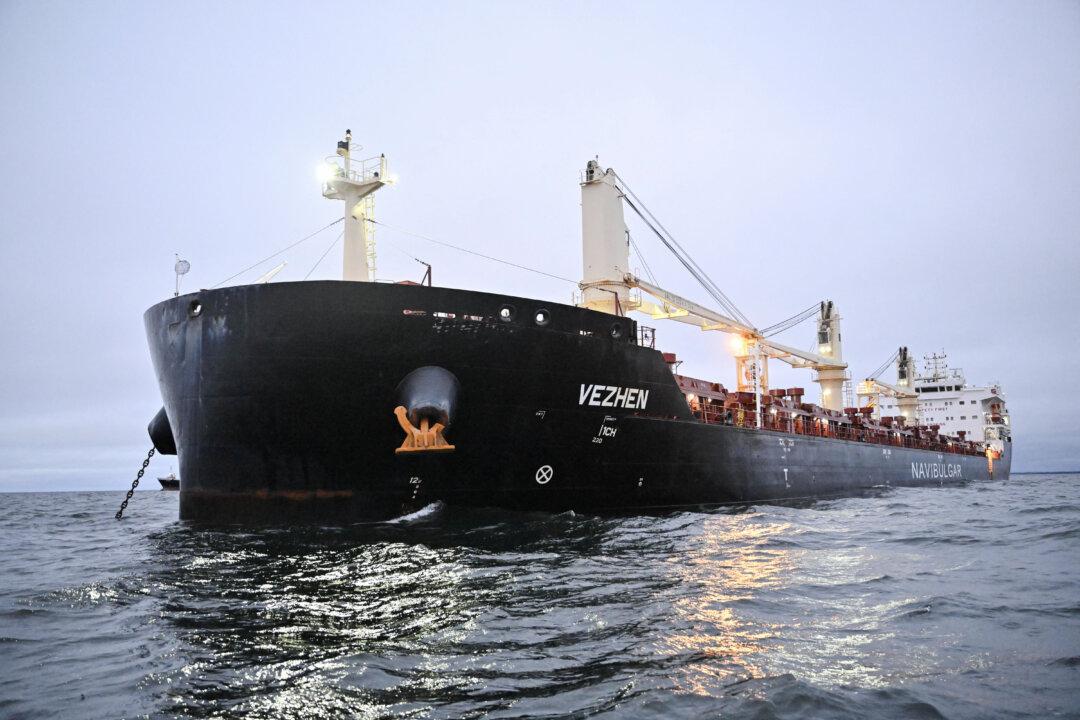Swedish authorities have boarded a ship sailing under the Maltese flag that was seized in connection with a Baltic Sea cable damage probe.
On Jan. 26, Latvian authorities said that an undersea cable between Latvia and Sweden was damaged earlier in the day in Sweden’s exclusive economic zone, likely as a result of “external influence.”




